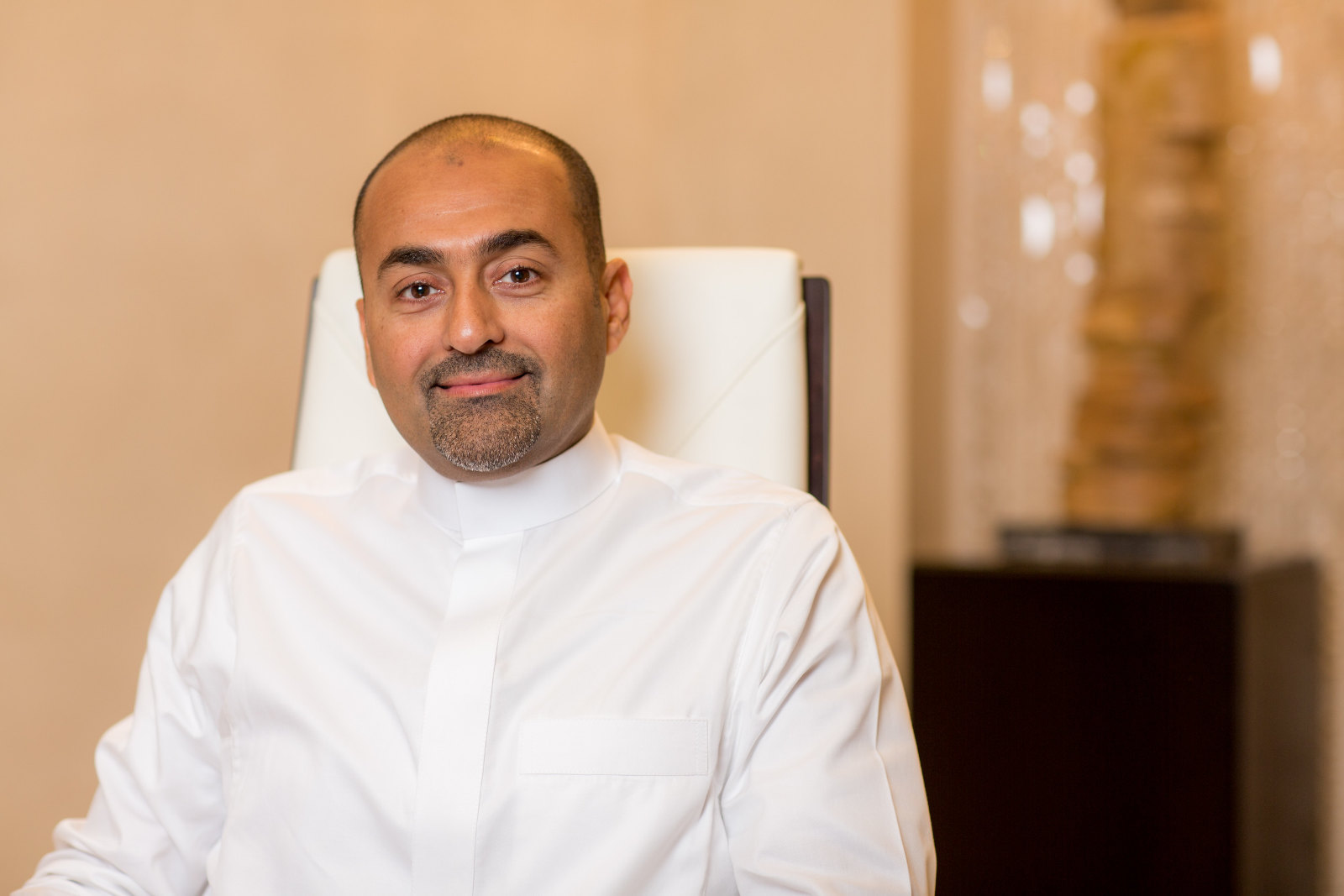
Above: Fad International founder Eyad Mashat.
FASHION At the forefront of Saudi Arabia’s fashion retail industry are two brands—Femi9 and Vivid Flair—which are both owned by Fad International.
Qurratulain Wahab met up with the company’s founder, Eyad Mashat, to find out more
From the January 2019 issue of Lucire KSA
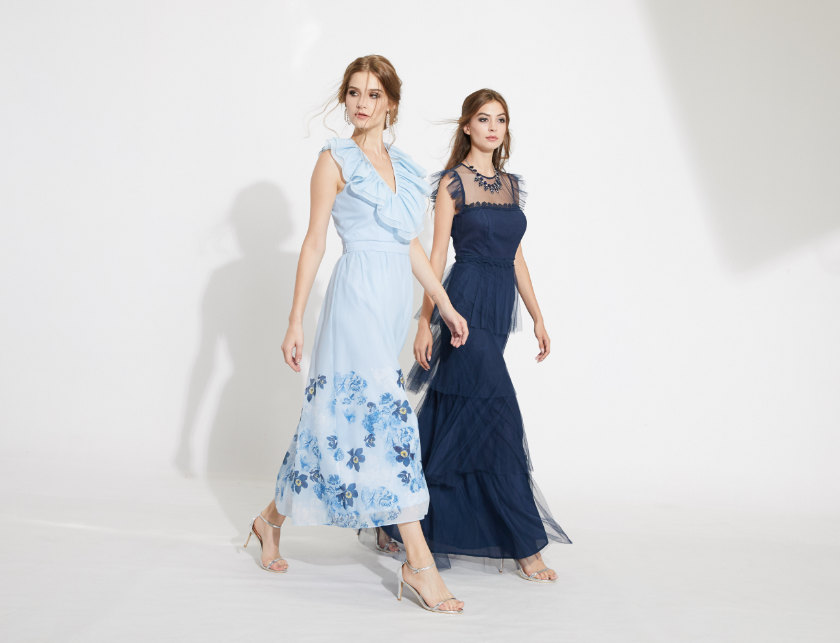
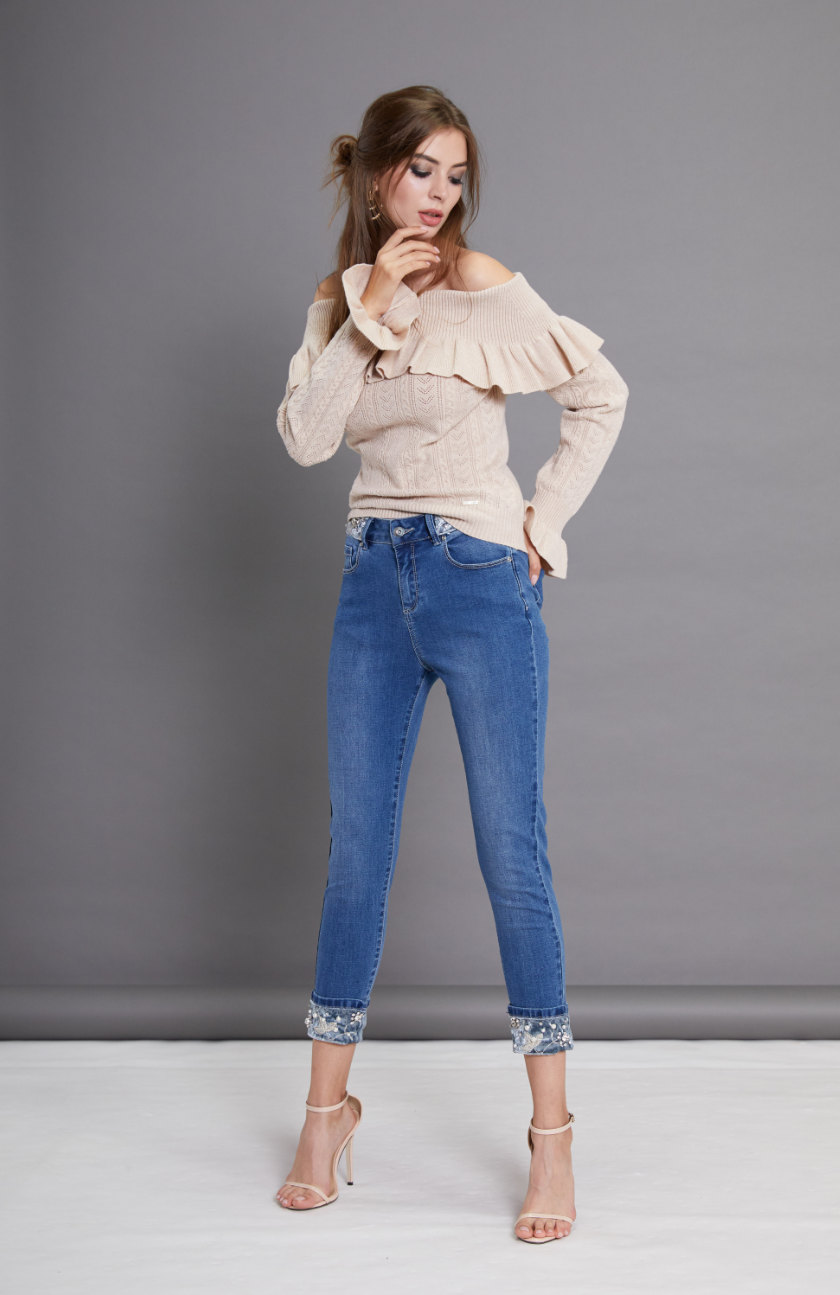
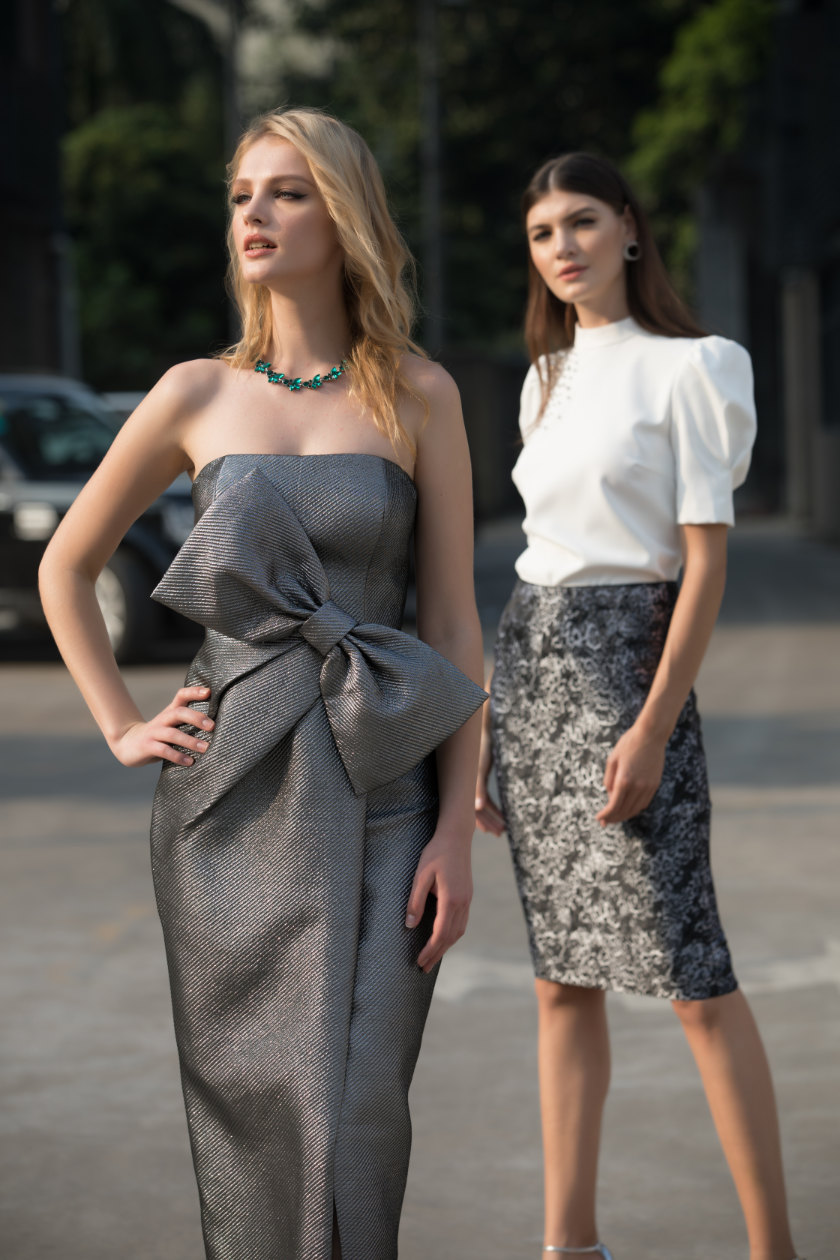 Above: A selection of looks from the Femi9 label.
Above: A selection of looks from the Femi9 label.
Qurratulain Wahab is editor of Lucire KSA.
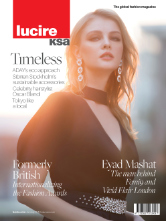 Eyad Mashat is one of those visionary names in Saudi Arabian fashion whose company, Fad International, has grown substantially over the last two decades. Beginning with a single Femi9 (officially styled in lowercase, femi9) store in 1999, Mashat has grown it into one of Saudi Arabia’s most recognized brands with a retail presence across the region and in Switzerland. A second brand, Vivid Flair, débuted in 2010.
Eyad Mashat is one of those visionary names in Saudi Arabian fashion whose company, Fad International, has grown substantially over the last two decades. Beginning with a single Femi9 (officially styled in lowercase, femi9) store in 1999, Mashat has grown it into one of Saudi Arabia’s most recognized brands with a retail presence across the region and in Switzerland. A second brand, Vivid Flair, débuted in 2010.
As his business celebrates its 20th anniversary, Mashat reflects on its beginnings, and what the future holds.
Lucire: Tell us about the evolution of Femi9 and Vivid Flair.
Eyad Mashat: I was born and raised in Mecca. My family has a long history in the textile industry and growing up I had a lot of hands-on experience working in our clothing store. After studying in Switzerland for six years, I came back to Saudi Arabia with the idea of creating my own brands.
I opened my first Femi9 store in Riyadh in 1999. That first store was basically a case study where I was trying to figure out the strengths and weaknesses of the business. Indeed, the first three years were basically a learning curve. At first, we carried evening dresses, casual wear and sportswear. After three years, we dropped the eveningwear and then a year later we dropped the sportswear. By 2004, we were entirely focused on affordable casual wear designed to fit the lifestyle of the region’s young, fashion-conscious women. Our business strategy was what we called ‘less is more’. In other words, there were fewer products and more emphasis on marketing and sales. That strategy has worked well for us over the years and we now have 59 stores around Saudi Arabia, across the region, and in Switzerland.
Vivid Flair was launched in London in 2010. The designers are British. The focus here is on luxury eveningwear featuring intricate detail, premium cuts and rich textures. The brand is quickly becoming one of the most recognized eveningwear brands in Saudi Arabia and we now have seven stores in four cities. Our future plans include strategic expansion into fashion capitals in the Middle East and Europe.
Femi9 was ranked among Saudi Arabia’s top 20 fastest growing companies in both 2009 and 2010. How has the brand grown in terms of sales?
The rankings were based on revenue. When we opened our first Femi9 store in 1999, our annual sales were about SR600,000. By 2009, this had grown to SR60 million. In 2011, we broke SR100 million and by 2013 we were at about SR170 million. Today, our total network sales average around SR220 million—that’s equivalent to US$58·7 million. I should also mention that we’ve been able to create a lot of jobs. Today, we employ around 550 people across our various business units in design, production, marketing and retail. Around 85 per cent of our employees are women and that is especially gratifying for me personally.
In 2014, you were ranked number one by Forbes magazine in their list of leaders in the fashion and clothing industry. You’ve been called the ‘king of fashion retail’. To what do you attribute your success?
Regarding our growth and success, I think there are probably at least four factors at work here. At a personal level, I really love what I do. I never really worked for the money. I worked because it was my passion. At the same time, I’m very focused, analytical and practical. I focus fully on the opportunities I have in front of me and don’t waste time and energy looking at others. Both brands were developed after a very large amount of market research. Actually, this is an ongoing and essential activity. The fashion retail industry is very competitive. If you’re not on top of market trends, developments and changes, then you’ll be faced with constant, recurring challenges.
Second, we have an uncompromising commitment to our products. They’re at the core of what we do. What I mean by this is that we are committed to producing exceptional designs, unsurpassed quality and accessible pricing. Even though our designs are often “trend-setters” and the kind of pieces you might expect to see on a runway, our prices are still very reasonable and within the reach of most university students, housewives, and young professionals. In addition to that, the products are not meant to be simply seen on a mannequin or on a hanger. They have to be worn. Every piece is designed as haute couture—it’s been tried on and fitted and that involves a lot of work. Mass-production brands don’t do that, but we do.
Third is the location and design of our retail stores. They are strategically located in selected high-end shopping centres and malls. The brand identity—colours, designs and themes—are to be found in each store. A relatively large floor space enables us to comfortably display the collections, and the lighting and layout are carefully designed to ensure customers have a great shopping experience in line with our highly customer-centric approach in everything we do.
Fourth, and perhaps most important, we employ really great, talented people. In Saudi Arabia, twenty years ago, companies were very hierarchical. Ours is not. We’re a family and we go on bonding trips together. Everyone is able to contribute. If you have an opinion or even a criticism about something and it’s not heard, then that’s a major issue for me. My door is open to everyone. We have a great team. They’re smart, passionate and dedicated to what they do. Without them, none of this would have been possible.
I think that together these factors go a long way to explaining our growth and success.
Beside the retail stores you recently ventured into ecommerce. Tell us about that.
Yes, indeed. We launched TheLevele.com in March 2018. We acquired a company that had been operating in Saudi Arabia for six years and by doing so we had access to a huge, ready-made database. That said, we had to do a lot of work to refine the system. It was a very steep learning curve—one you probably wouldn’t find at Harvard Business School—but I learned so much. Ecommerce currently accounts for less than 12 per cent of the market in Saudi Arabia and I believe it will grow tremendously in the next three to five years to as much as 20 per cent. Our aim is to position ourselves to be able to offer a wide variety of brands from all over the world to women in Saudi Arabia and the GCC. Initially we’re focusing on clothing, beauty products, fragrances, accessories, shoes and bags. The website is also an opportunity for local designers and businesses to offer their products and services to a wider audience. Since its launch, TheLevele.com has performed remarkably well. We have a rapidly growing customer base and an evolving product portfolio.
In terms of leading such a large organization, what lessons have you learned?
I think business and, indeed, life in general is a constant learning curve. In general, I tend to listen more than I speak and by doing so I’ve learned many lessons. For example, I always say to people going into business: ‘Dream big, but don’t act big.’ I say this because very often I see people that have big dreams acting as if they’ve already arrived. That’s not the way to do it. It has to be gradual. You have to set milestones along the way. Another important thing I’ve learned is not to look just at successful businesses but also look at those that failed. Why did they fail? That’s a key question you need to consider for your own business so you won’t make those same mistakes. And even if you do make mistakes, you should also learn from them. You shouldn’t be afraid to make mistakes, but you should be concerned about not correcting them. •
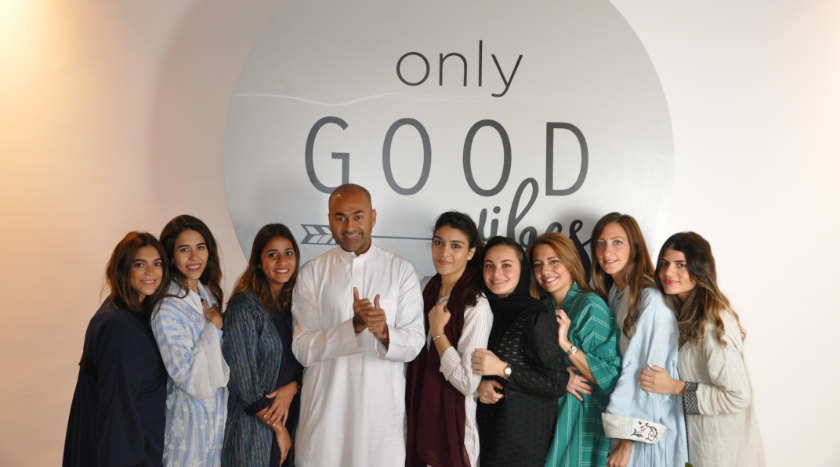
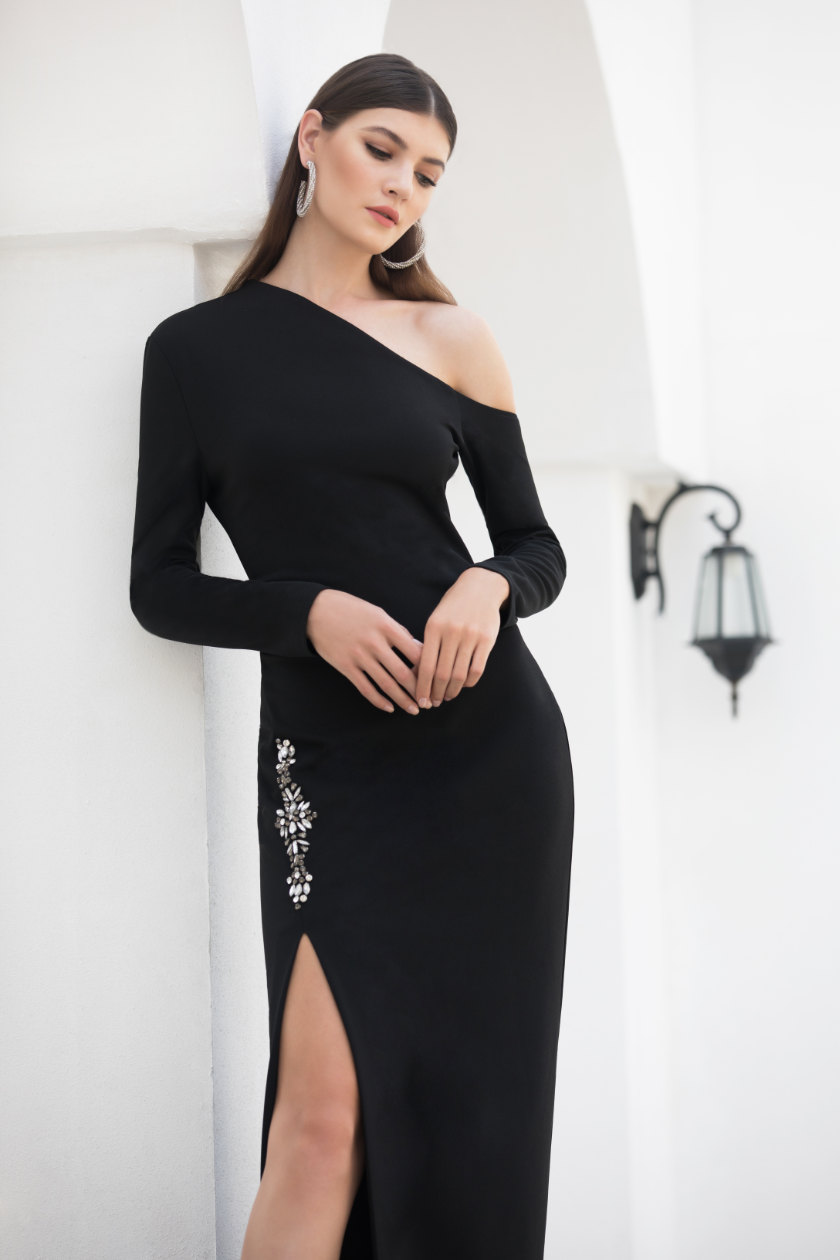
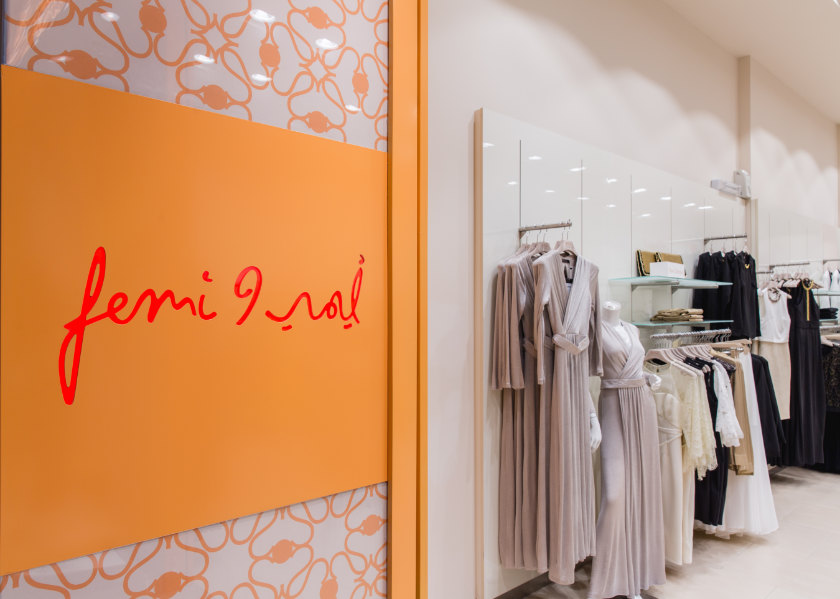 Top: Eyad Mashat, our intrepid Lucire KSA editor Qurratulain Wahab (standing next to him, to his left), and some of his staff. Centre: Another Femi9 design. Above: Inside a Femi9 retail store.
Top: Eyad Mashat, our intrepid Lucire KSA editor Qurratulain Wahab (standing next to him, to his left), and some of his staff. Centre: Another Femi9 design. Above: Inside a Femi9 retail store.
Related articles hand-picked by our editors
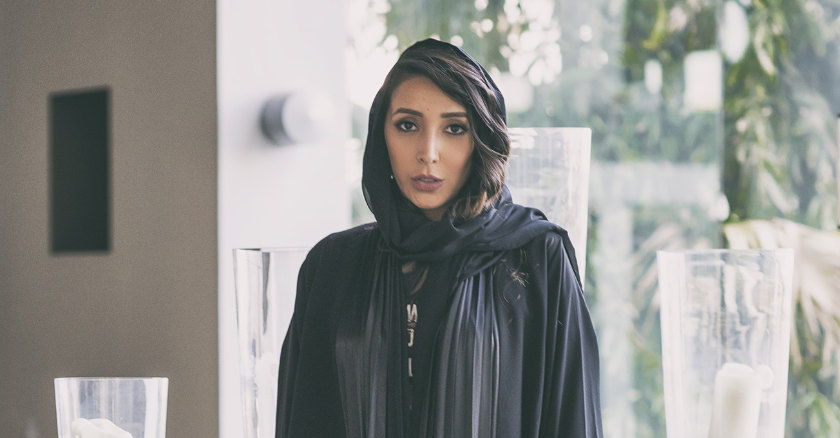
Getting serious about Saudi fashion
Marriam Mossalli is the founder of Niche Arabia, one of the Middle East’s leading consultancies specializing in fashion and luxury goods. She is a leading voice for Saudi Arabia’s emergent fashion industry. Qurratulain Wahab headed to her offices in Jeddah to find out more
Photographed by Nouf Alhimiary and Lina Qummosani
From the December 2018 issue of Lucire KSA
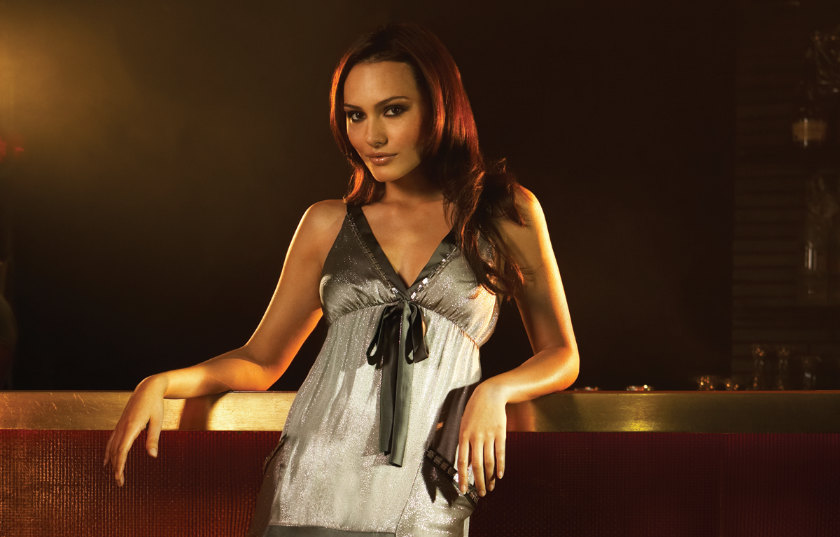
In living colour
In another look back at our archives as we celebrate 20 years: Hale Bob brings a global edge and a feminine sensibility to US west coast fashion. In 2008, Elyse Glickman visited Moroccan-born, French-educated creator Daniel Bohbot and director of marketing Marc Springer
From issue 26 of Lucire
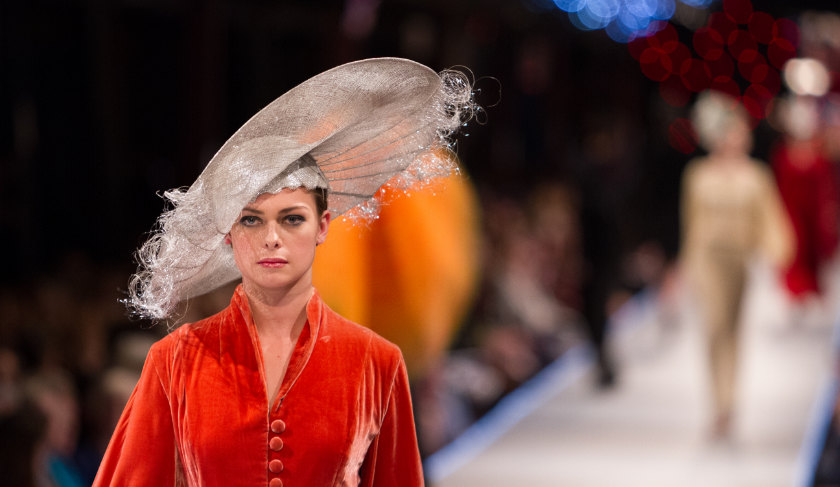
Demystifying Stephen Jones
In another look back at our 20 years, Stephen Jones, OBE, one of the great names in millinery, talked to Jack Yan in 2013 about his creative process, his drive, and his favourite collection
Photographed by Yvonne Shearer
Catwalk photographed by Matthew Beveridge
from issue 30 of Lucire
Advertisement
Copyright ©1997–2022 by JY&A Media, part of Jack Yan & Associates. All rights reserved. JY&A terms and conditions and privacy policy apply to viewing this site. All prices in US dollars except where indicated. Contact us here.